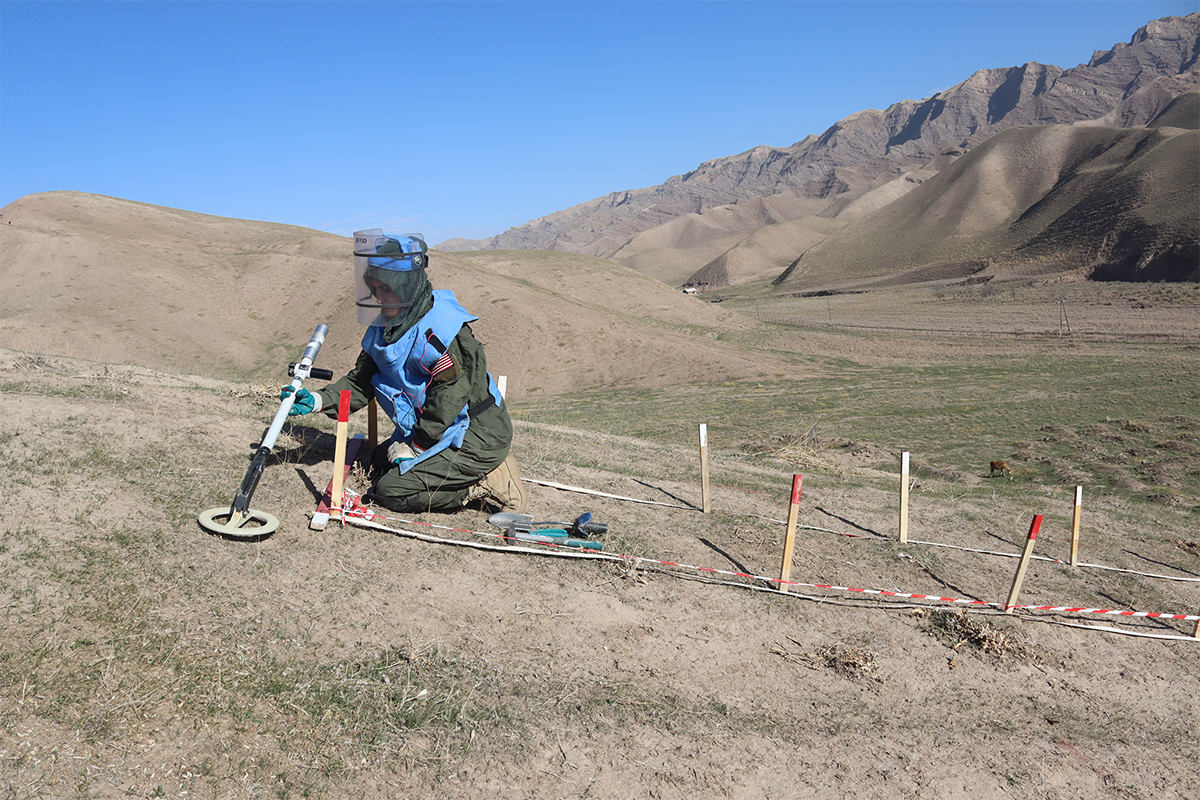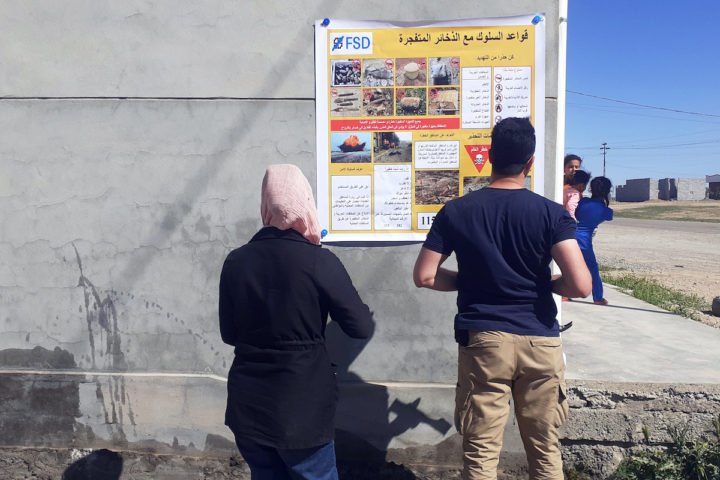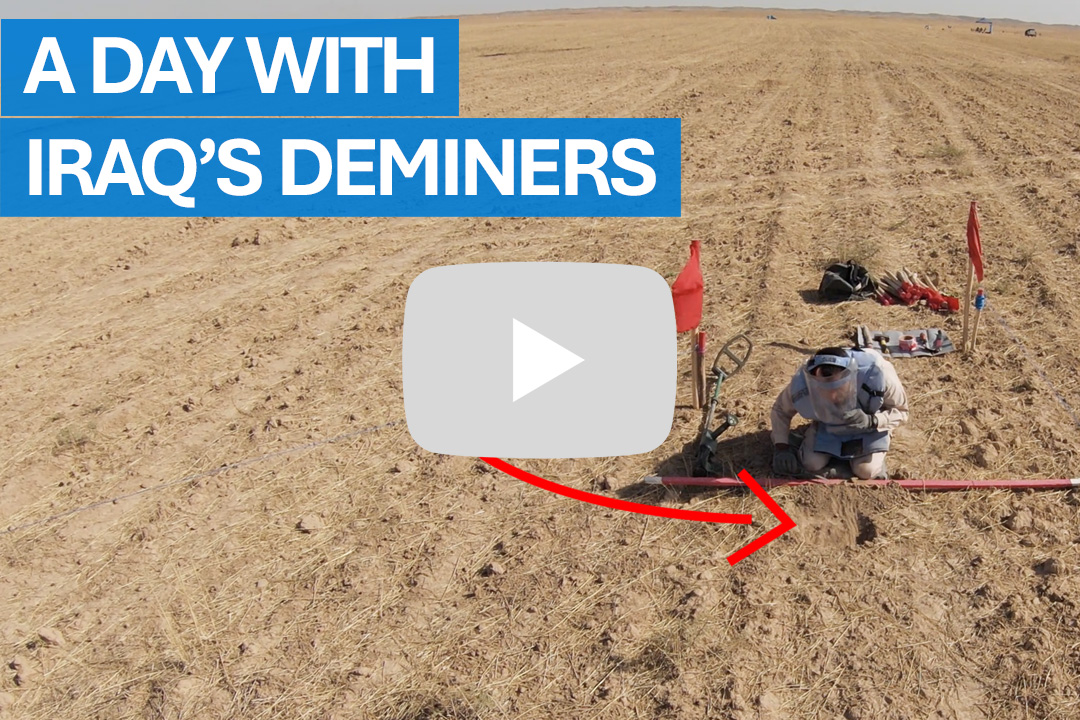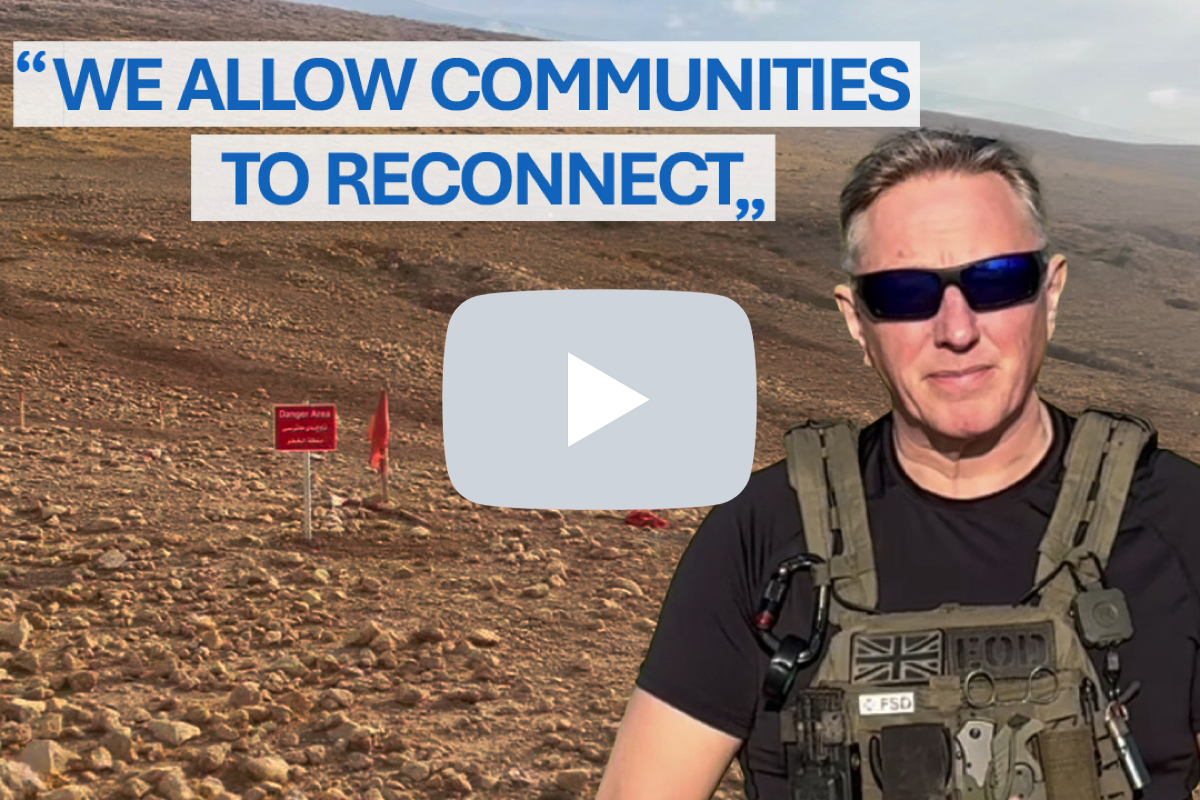Iraq
In Iraq, FSD deminers locate and clear improvised mines in areas previously occupied by the Islamic State group. In addition, FSD is raising awareness about these dangerous devices amongst affected populations.
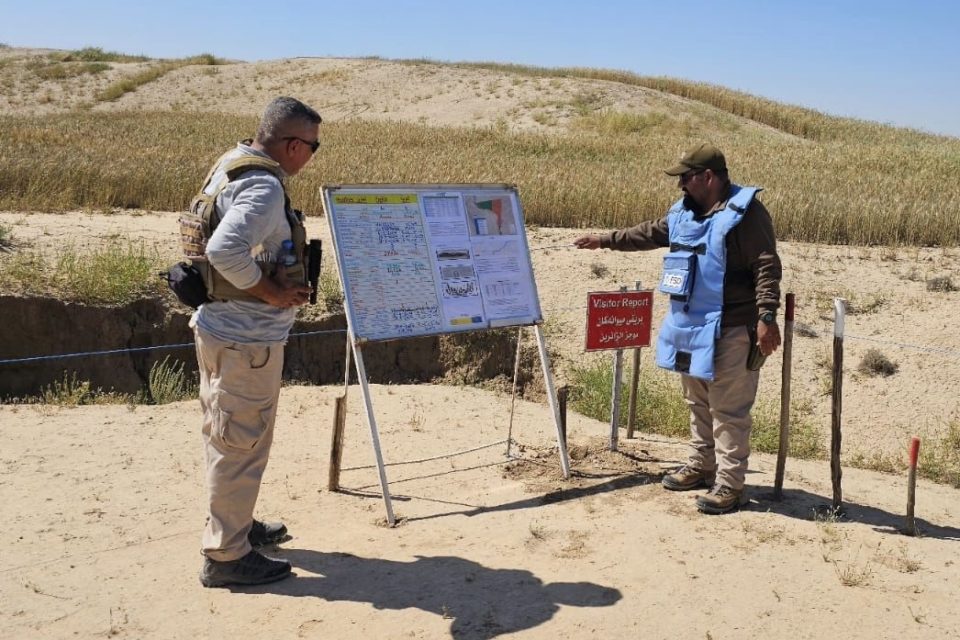
Before an improvised explosive device is rendered safe, the team leader and operator determine the best way to neutralise the device. (Iraq, 2024)
Iraq
Context
By the end of 2017, the war against the Islamic State group was officially over; the jihadist group had been largely driven out of all the areas it had occupied since 2014. For the Iraqi population, however, this did not imply an immediate return to a normal life.
Many villages are still littered with explosive devices laid on roads, in fields, homes and schools. Inside buildings, these so-called improvised mines are sometimes hidden under furniture, in televisions or refrigerators, in doorways and windows.
In addition to these deadly devices, dangerous pieces of unexploded or abandoned explosive ordnance are scattered across former battlefields.
It is essential to clear contaminated villages and agricultural areas as soon as possible and to train Iraqi national organisations in mine clearance. Only then can people safely return to their homes, cultivate their lands and send their children to school.
An accident occurred in the area when a boy was herding sheep. An explosive device exploded under him. Then his cousin came to rescue him, and another device went off.
Inhabitant of Al-Khalidiya
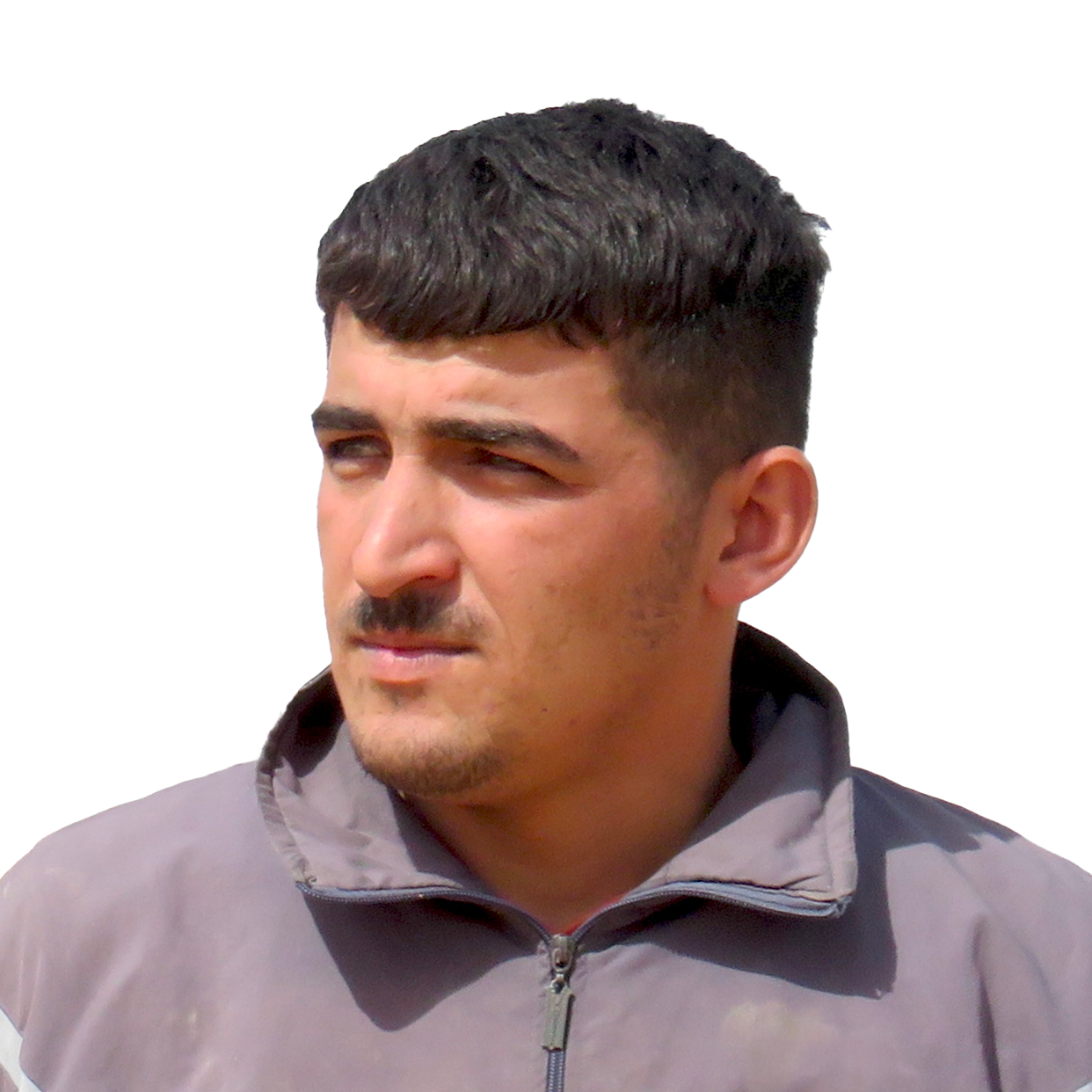
Timeline
FSD in Iraq
FSD began working in Iraq in 2016 when the Islamic State group still occupied part of the country. It has deployed several demining teams, notably in the Governorates of Erbil and Nineveh, where our teams are currently active.
Demining operations in Iraq are delicate for deminers: explosive hazards are widespread, and the fact that they are improvised in nature makes it more challenging to neutralise them. Each device encountered can differ from others and therefore requires special handling. For example, some may include hidden or multiple activation switches.
The environment represents an additional challenge for deminers as well as for FSD risk education experts and survey teams who work in the north of the country. Temperatures can reach up to 50°C for a good half of the year which hardens and dries the soil. Consequently, our teams sometimes use mechanical means to excavate explosive devices.
Modified construction machines can support the manual work of deminers in some cases. A small remote-controlled vehicle makes it possible to inspect the interiors of potentially hazardous buildings. Finally, our survey teams have started using a small remote-controlled drone to help determine the presence or absence of explosive ordnance contamination in a given area to support survey operations.
In 2020, FSD started a project to train Iraqi national staff and develop their capacities in mine action. FSD experts trained staff from Shareteah Humanitarian Organisation (SHO), a local non-governmental organisation. In January 2024, FSD successfully concluded its capacity-building project with SHO, which is now the only Iraqi NGO conducting humanitarian mine action operations.
FSD’s programme in Iraq is supported by the United States Department of State, the United Nations Mine Action Service (UNMAS), the Canton of Geneva, GGL Austria, and private donors.
Stories
News from Iraq
A Deminer’s Day, Hour by Hour
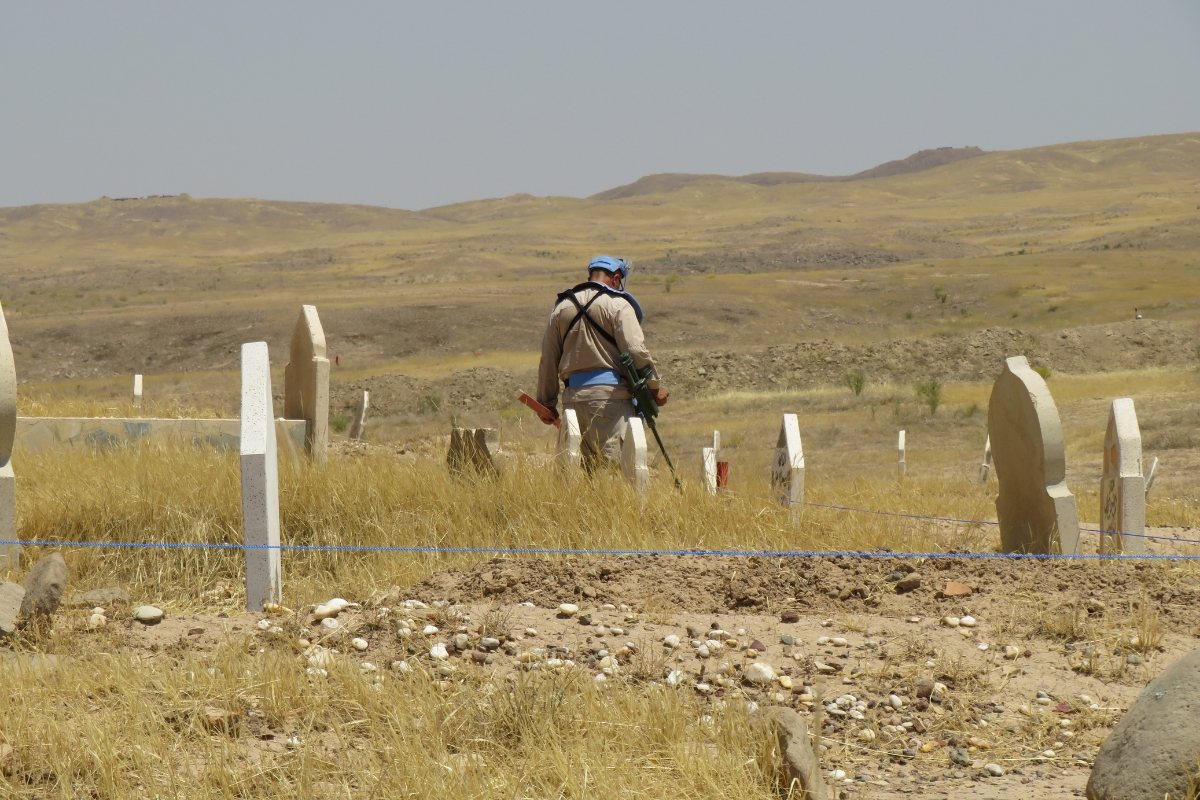
A MINED CEMETERY REHABILITATED
Once occupied by the Islamic State, the village of Kubaiba in Iraq was heavily mined. Since April, our deminers have worked tirelessly to clear these hazards. The cemetery is now safe, allowing inhabitants to pay their respects.
FOR A SAFER WORLD
In 2024, FSD cleared nearly 1,000 explosive devices, helping communities stay safe and rebuild their lives.
newsletter
- News from the field
- Demining videos
- Interviews with experts
- Events
- Job offers
